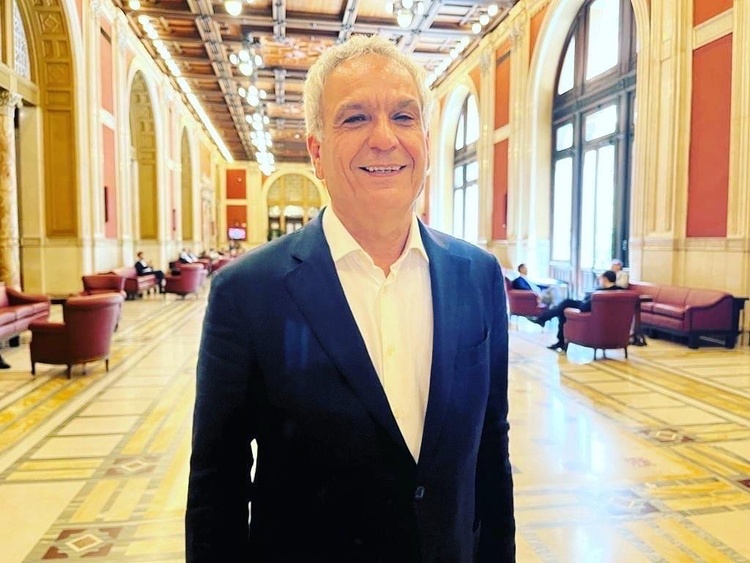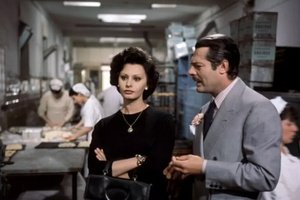Defined by the upheavals caused by the pandemic, no less than three Cabinet reshuffles, growing international tensions, and a government crisis in the middle of summer, Nicola Carè's years in Montecitorio have been particularly complicated, not least because a series of emergencies left very little room for effective parliamentary activity.
If you then consider his decision at the beginning of the term to join then Secretary Matteo Renzi in splitting from the Partito Democratico, the eventful picture of his first experience as an MP is complete. His arrival in Italia Viva, motivated above all by self-esteem and loyalty to the man who had given him the opportunity to represent our community, was however only a fleeting digression for Nicola Carè.
"I immediately realised that Italia Viva was not the environment in which I could fully express the needs of our community,” he explained to Il Globo.
“So, not long after, I returned to the Democratic Party and to the same people I’d set out with.”
While these initial choices and difficulties made Carè's parliamentary experience much more arduous, they were also a form of apprenticeship wherein he was able to learn some important lessons.
Lessons not only about the pitfalls of parliamentary life, and consequently how to avoid them, but also in how to manoeuvre one's way through the maze of Montecitorio and make an impression, both within the party and in the various offices and commissions, which are ultimately the hidden engine without which a proposal can’t really be heard. These things might seem insignificant, but they are not. And this is evidenced by the fact that the Democratic Party didn’t second guess reappointing him for a second term, but also, according to Carè, by the objectives that he himself helped to achieve.
“Despite everything, the results we were able to achieve were important,” the MP claims.
"First of all, what we achieved with the IMU tax for Italo-Australians who own houses in Italy,” he explains.
“Until today, a pensioner who had a house in Italy had to pay 100 per cent of the IMU. In 2020 we managed to reduce this tax by 50 per cent, and in 2021 the exemption came to 62.5 per cent. This was a great victory for us, for our party, and above all, for all pensioners abroad.”
However, achievements always require a lot of preparatory work, which in the past few years was slowed down by the fragmented organisation of policies for Italians abroad. This is also why one of the achievements that Carè attributes to himself and his party is the establishment of a bilateral commission for issues concerning Italians abroad.
“I have been promoting it since the beginning of the legislature,” Carè assures us.
“And its realisation has been a great achievement.”
The reasons that prompted him to run again, however, do not lie only in past successes, but in those he hopes to attain in the future.
"In the international program of the Democratic Party I have personally broached a series of issues that concern us, and that must be addressed as soon as possible,” he clarifies, “because they have been sidelined during these years due to all of the crises we have had.”
“It is indeed important that Italian healthcare be guaranteed for AIRE members, at least for the first three years,” he continues.
“It is equally important that the assistance offered by pension or social security offices to our fellow countrymen be made easier.
“The network of Italians abroad should be utilised for the globalisation of Italian enterprises and the promotion of Italian products.
“We also want tourism, a major project of the Ministry of Foreign Affairs, to be properly relaunched.
“And, finally, that the re-acquisition of Italian citizenship be possible.”
These certainly aren’t new problems but just ones that politics has not been able to tackle to date, especially the Italian citizenship issue.
“It's true, but that's because we always talk about the entire foreign constituency,” Carè admits.
“Today, we would like to at least start tackling the issue for those people born before 1948 who have had to renounce their citizenship.”
Seeing this resolved would at least offer a glimmer of hope for the many who have been waiting for years and who have long since given up.
“It is something that has caused the community’s confidence to drop, especially among the younger generations.
"This is a problem we want to tackle and we are addressing it,” admits Carè.
“We certainly need to create an information and training path dedicated to the second and third generations. Otherwise we’ll lose them along the way. And this does not only concern interest in Italian politics and therefore in voting, but it is also a crucial aspect in ensuring that Italy’s descendants know today's Italy.”
And today's Italy is a country that finds itself in a very difficult moment, and facing many problems, including that of immigration, an issue which the Democratic Party has certainly not handled well in recent years. Faced with a right-wing that advocates for closures and naval blockades, the left remains in the background and appears unconvincing.
"Easy solutions are good in an election campaign, but this is a problem that must be tackled in broad strokes, taking also into consideration the geopolitical imbalance in North Africa, in the eastern Sahel,” Carè ventures.
“One cannot think of isolating Italy from all this,” he says.
“The migration process cannot be stopped with walls and blockades; people must be welcomed and integrated.
“They should be inserted in sectors that need manpower, such as agriculture, while being extremely careful that exploitative environments are not created. The PD therefore aims to develop international agreements that favour the training and integration of people fleeing war or poverty.”











